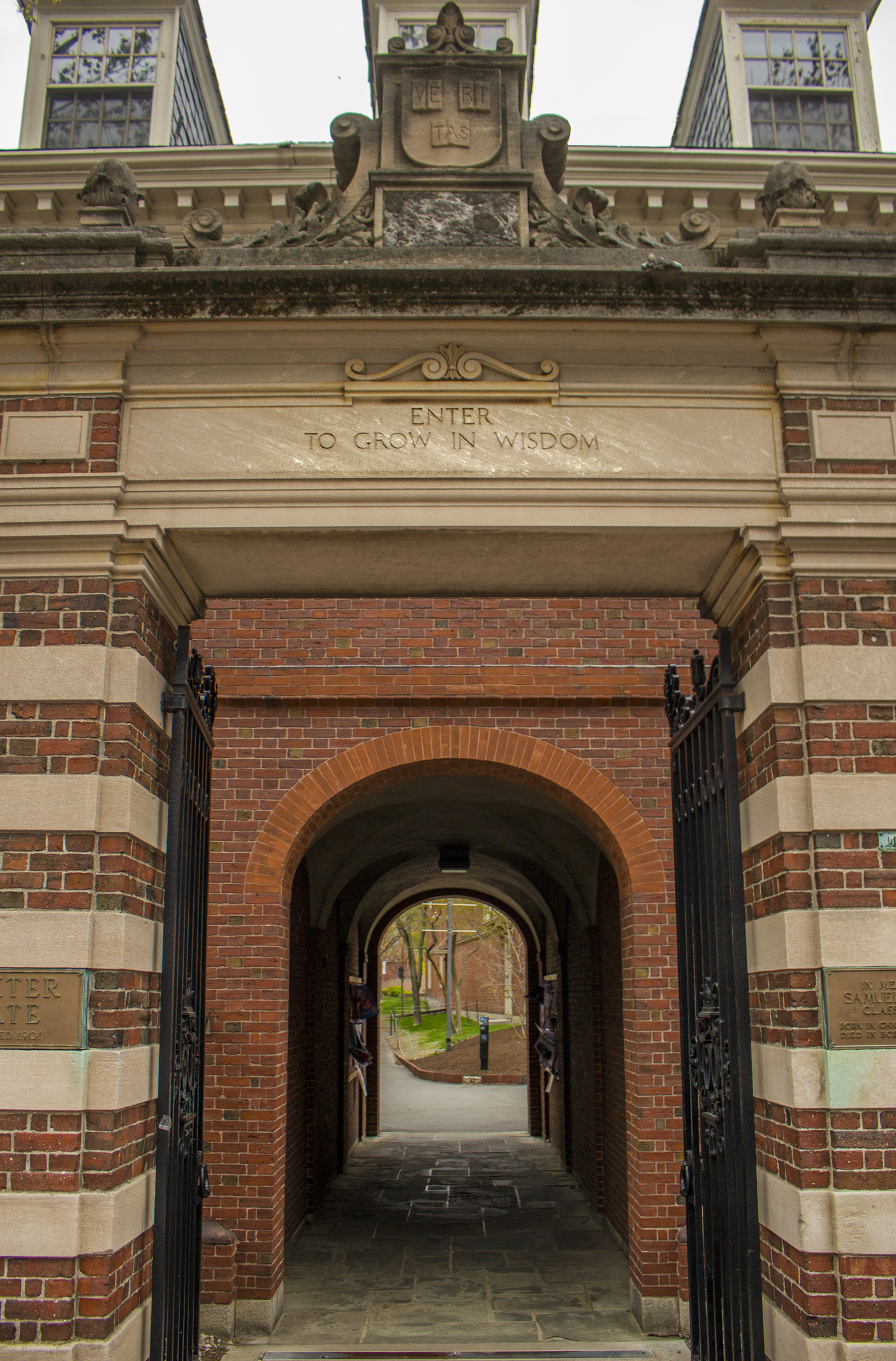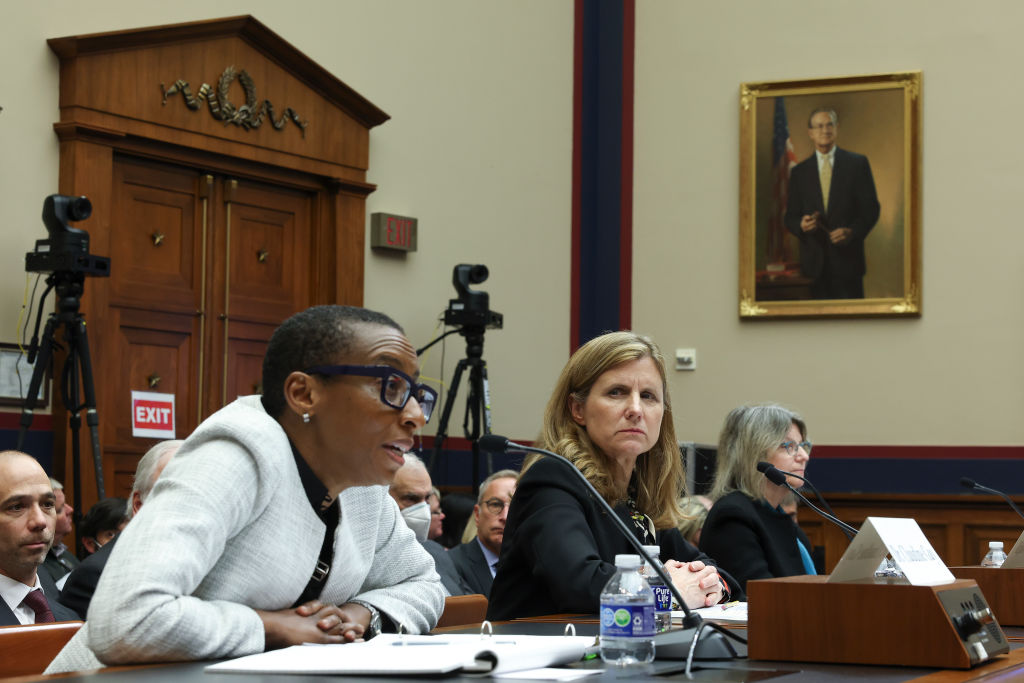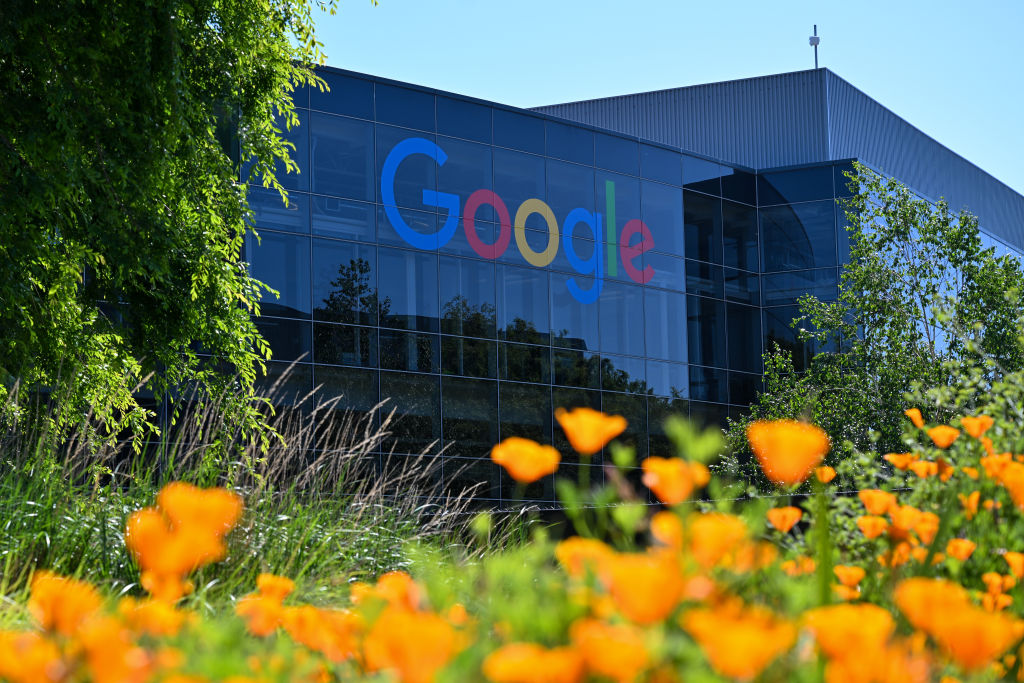
Dr. Karp is co-founder and chief executive officer of Palantir Technologies Inc. Zamiska is head of corporate affairs at the company and legal counsel to the office of the chief executive officer. Their forthcoming book, The Technological Republic, is set to be published next year by Penguin Random House.
In 1976, Frank Collin, an ambitious leader in the small but resilient Nazi party of the United States, planned a march in Skokie, Illinois—an attempt to raise the profile of his organization and build support for his cause. The town, many of whose residents were Jewish and had lived through the war, vehemently opposed the demonstration, and the case went to the courts. The American Civil Liberties Union came to the legal defense of Collin and his fellow Nazis on First Amendment grounds—a move that would be almost unthinkable today.
Aryeh Neier, the national executive director of the ACLU at the time, received thousands of letters condemning his organization’s decision to defend the free speech rights of Nazis. Neier was born into a Jewish family in Berlin in 1937 and fled from Germany to England along with his parents as a child. He later estimated that 30,000 ACLU members left the organization as a result of its decision to come to the legal defense of the Nazi demonstrators.
His interest in protecting Collin’s right to free speech under the First Amendment was not rooted in an unthinking commitment to liberalism or its values. He instead held two seemingly contradictory yet deeply felt and genuine beliefs—in the abhorrence of Collin’s views as well as the importance of defending his right to express them against infringement by the state. “To defend myself, I must restrain power with freedom, even if the temporary beneficiaries are the enemies of freedom,” he later wrote. His beliefs had a cost, and their defense required putting the credibility of his organization, and himself, at risk.
The congressional testimony late last year by the presidents of Harvard, the University of Pennsylvania, and the Massachusetts Institute of Technology—the first two of whom resigned from their positions—raises similar issues to those that arose in Skokie nearly half a century ago, including the familiar tension between protecting free speech rights and guarding against attempts to alienate and subjugate the other. But the testimony also exposed a far more significant and fundamental challenge that we, in the U.S. and the West, face.
A broad swath of leaders in the U.S., from academic administrators and politicians to executives in Silicon Valley, have for years often been punished mercilessly for publicly mustering anything approaching an authentic belief. The public arena—and the shallow and petty assaults against those who dare to do something other than enrich themselves—has become so unforgiving that the republic is left with a significant roster of ineffectual and often hollow vessels whose ambition one would forgive if there were any genuine belief structure lurking within. The current system in Silicon Valley leaves little room for capable and original thinkers whose principal motivation is something other than self-promotion, and who often lack a willingness to subject themselves to the theater and vicissitudes of the modern public sphere.
An entire generation of executives and entrepreneurs that came of age in recent years was essentially robbed of an opportunity to form actual views about the world—both descriptive, what it is, and normative, what it should be—leaving us with a managerial class whose principal purpose often seems to be little more than ensuring its own survival and re-creation. The result is that many of those in power have become so fearful of offending anyone that one would be forgiven for assuming based on their public statements that their interior lives and most intimate thoughts had recoiled into something small and shallow. The perverse and unintended result is that corporations selling consumer goods feel the need to develop and indeed broadcast their views on issues affecting our moral or interior lives, while software companies with the capacity and, perhaps, duty to shape our geopolitics remain conspicuously silent.

At Palantir, we build software and artificial intelligence capabilities for defense and intelligence agencies in the U.S. and its allies across Europe and around the world. Our work has been controversial, and not everyone will agree with our decision to build products, including software that enables offensive weapons systems, for the U.S. military. But we have made a choice, notwithstanding its costs and complications. And many overlook the benefits. As a deputy to James Mattis, who would later become U.S. defense secretary, once wrote, in an internal request within the defense department for access to our software, according to an article on our work in Fortune, “Marines are alive today because of the capability of this system.”
Read More: How Palantir Is Shaping the Future of War
The congressional testimony by the university presidents exposed the bargain that contemporary elite culture has made to retain power—that belief itself, in anything other than oneself perhaps, is dangerous and to be avoided. The Silicon Valley establishment has grown so suspicious and fearful of an entire category of thought, including contemplations on culture or national identity, that anything approaching a worldview is seen as a liability. The halting testimony of the university presidents when asked about antisemitism on campus was significant not because of its content, but because of its cool precision and calculation—embodying the archetype of the new administrative class, clinical and careful, and above all without feeling. The problem is that those who say nothing wrong often say nothing much at all. “If you do not feel it, you will not get it by hunting for it,” Goethe reminds us in Faust. “You will never touch the hearts of others, if it does not emerge from your own.”
The presidents struck many as wholly unaware of the internal contradictions of their position— contradictions stemming from their commitment to free speech, on the one hand, but also the eagerness of their institutions in various other contexts to carefully patrol the use of language. Our culture more broadly has for the most part successfully pounded down any notes or errant hints of zeal and feeling in those leading our most significant institutions. And what remains beneath the polish is often unclear. When we require the systematic elimination of the thorns, barbs, and flaws that necessarily accompany genuine human contact and confrontation with the world, we lose something else. The work of Erving Goffman, a Canadian-born sociologist, on what he described as “total institutions,” may be instructive here. In a collection of essays published in 1961 titled Asylums, Goffman defined such institutions, which include prisons and mental hospitals, as places “where a large number of like-situated individuals, cut off from the wider society for an appreciable period of time, together lead an enclosed, formally administered round of life.” The same might be said of some of our nation’s most elite universities, which have nominally and belatedly opened their doors to a far broader swath of participants but whose internal cultures remain remarkably cloistered and walled off from the world.
In the late 1960s, an earlier generation of university administrators, including Kingman Brewster Jr. at Yale, took a different path when it came to confronting and embracing a challenge to entrenched power and elite privilege. A series of civil rights demonstrations involving the Black Panthers and others engulfed Yale’s campus in May 1970, and at least two bombs exploded in the school’s ice hockey rink. There was a willingness, however, by Brewster and others to venture into the ethical morass of the moment in a way that would ensure a swift and summary cancellation in the U.S. today. In April 1970, at a meeting of hundreds of Yale faculty members in New Haven, Connecticut, Brewster said that he was “skeptical of the ability of black revolutionaries to achieve a fair trial anywhere in the United States,” according to a report in the New York Times the following day. He had ventured into the conflagration, not away from it. Spiro Agnew, the vice president of the United States, promptly called for Brewster to resign. He did not, however, and ultimately emerged stronger as a result of the thwarted assault on his reign. We have perhaps arrived at a point when we must again embrace the possibility, as Geoffrey Kabaservice has written that Brewster and others did at Yale, that our “highest responsibility might be to unsettle the status quo rather than preserve it.”
Allan Bloom, who taught at the University of Chicago, more than three decades ago articulated the challenge that we currently face in his 1987 polemic The Closing of the American Mind. Our commitment to “openness,” a vital and uncontroversially necessary good, he wrote, “has driven out the local deities, leaving only the speechless, meaningless country.” Bloom continued: “There is no immediate, sensual experience of the nation’s meaning or its project, which would provide the basis for adult reflection on regimes and statesmanship. Students now arrive at the university ignorant and cynical about our political heritage, lacking the wherewithal to be either inspired by it or seriously critical of it.”

In the late 1980s, Bloom was focused on the interior and intellectual lives of university students. But it is those students who are now our administrators. And the culture in which those administrators have been raised has been unforgiving, systematically punishing anything approaching moral courage and incentivizing its opposite. In this way, the university presidents are victims of their and our collective focus on the policing of language and by extension thought, combined with the enforcement of elaborate yet unpublished codes regarding behavior—that together deprive individuals of the habit and instinct required to develop sincerely held and authentic beliefs, as well as the gall to express them.
Michael Sandel, a professor at Harvard Law School, anticipated the contradictions that arise from our fierce commitment in the West to classical liberalism, and its elevation if not preference for individual rights at the expense of anything approaching collective purpose or identity, as well as our cultural reticence to venture into many of the most meaningful and significant moral debates of our time. It is this fundamental abdication of responsibility for articulating a coherent and rich vision of the world, and of shared purpose, that has left us unable to confront issues with moral clarity or true conviction. And the consequences of this reticence, “where liberals fear to tread,” as Sandel famously put it, are now being made clear. “Where political discourse lacks moral resonance, the yearning for a public life of larger meanings finds undesirable expressions,” he wrote in Liberalism and the Limits of Justice. As a result, our broader cultural discourse shrinks down into something small and petty, becoming “increasingly preoccupied with the scandalous, the sensational, and the confessional,” Sandel wrote. His broader critique was that a certain narrowness of modern liberalism “is too spare to contain the moral energies of a vital democratic life,” and “thus creates a moral void that opens the way for the intolerant, the trivial, and other misguided moralisms.” That void is now being revealed.
Read More: How Tech Giants Turned Ukraine into an AI War Lab
While our collective focus has been trained on the nation’s most elite educational institutions, Silicon Valley and the technology companies that now control vast swaths of the global economy may soon be facing a similar reckoning. The leaders of Silicon Valley, who have constructed technical empires that structure and shape our lives, were for the most part raised in a contemporary culture deeply skeptical of substance and authentic belief. The principal sin for this cohort is to offend. A certain pragmatism and insensitivity to calculation has been lost on them.
This emerging technological class—the masters of this new universe that we inhabit, willingly or otherwise—often points to software and artificial intelligence as our salvation. They believe, to be sure, but principally in themselves and in the power of their creations, stopping short of entering into a discourse with the most significant questions of our time, including the broader project of the nation and its reason for being. They are building, but we should ask for what purpose and why. The risk is that we have enabled a new class of technological leadership, whose capacity for forming its own authentic beliefs about the world has been severely diminished. And that absence leaves them vulnerable, to becoming instruments for the plans and designs of others. An entire generation is at risk of being deprived of the opportunity to think critically about the world or its place in it. It is this productization of the American mind, in addition to its closing, that we must guard against. A significant subset of Silicon Valley undoubtedly scorns the masses for their guns and religion, but that subset itself clings to something—a thin and meager secular ideology that masquerades as thought.
The shallow and thinly veiled nihilism of a corporate slogan such as “don’t be evil,” which Google adopted when the company went public in 2004 and later exchanged for the similarly banal, “do the right thing,” captures the views of a generation of extraordinarily talented software engineers who were taught to prize the identification of and resistance to evil over the more difficult and often messy task of navigating the world in all its imperfection. In April 2018, for example, more than three thousand Google employees sent an open letter to Sundar Pichai, the company’s chief executive officer, demanding that he halt a project with the U.S. Department of Defense on developing software for use by the American military around the world. “Google should not be in the business of war,” the employees wrote, insisting that the company agree never to “build warfare technology.”
The problem is not a principled commitment to pacifism or nonviolence. It is a more fundamental abandonment of belief in anything. The employees who resisted leveraging the machinery of Google in service of building software for the U.S. military know what they oppose but not what they are for. The company, at its core, builds elaborate and extraordinarily lucrative mechanisms to monetize the placement of advertising for consumer goods and services that accompany search results. The service is vital and has remade the world. But the business, and a significant subset of its employees, stop short of engaging with more fundamental and essential questions of national purpose and identity—with an affirmative vision of what we want to and should be building as part of a national project, not simply an articulation of the lines that one will not cross. They remain content to monetize our search histories but decline to defend our collective security. The entire company, however, along with any number of Silicon Valley’s largest technology enterprises, owe their existence in significant part to the educational culture, as well as the legal protections and capital markets, of the U.S.
Some perhaps tell themselves that they are involved in a broader project. But the mere association of oneself with an ideology or political movement—and resulting feeling of adjacency to engagement and proximity to action—too often masquerades as actual belief or thought. As Henry Kissinger reminded us, according to Paul Kennedy in The Rise and Fall of the Great Powers, nations “should be judged on what they did, not on their domestic ideology.” We should also remember that it is the systematic expression and investigation of one’s own beliefs—the essential purpose of genuine education—that remains our best defense against the mind becoming a product or vehicle for the ambitions of another.
In the end, the nation, this collective attempt at not merely self-governance but the construction of a shared and common life if not purpose, will decide whether it wants Silicon Valley to believe in anything other than the power of its own creations. The technology companies that this country has built have for the most part deftly navigated around any issues that would draw undue scrutiny or unwanted attention—the hallmark of their mode of being is avoidance and, often, silence.
The current silence is a symptom of a broader reticence to offend and to permit ourselves and those around us to err. In one particularly haunting scene from George Orwell’s 1984, Winston Smith, his protagonist, finds himself wandering through a wooded area, seemingly far from the reach of the state’s dystopian minders. Even then, secluded and almost assuredly free from observation, Smith imagines that a microphone might be concealed in the trees, through which “some small, beetle-like man” would be “listening intently.”
The dystopian future that Orwell and others have imagined may be near, but not because of the surveillance state or contraptions built by Silicon Valley giants that rob us of our privacy or most intimate moments alone. It is we, not our technical creations, who are to blame, for failing to encourage and enable the radical act of belief in something above and beyond, and external to, the self.
More Must-Reads From TIME
- The 100 Most Influential People of 2024
- Coco Gauff Is Playing for Herself Now
- Scenes From Pro-Palestinian Encampments Across U.S. Universities
- 6 Compliments That Land Every Time
- If You're Dating Right Now , You're Brave: Column
- The AI That Could Heal a Divided Internet
- Fallout Is a Brilliant Model for the Future of Video Game Adaptations
- Want Weekly Recs on What to Watch, Read, and More? Sign Up for Worth Your Time
Contact us at letters@time.com